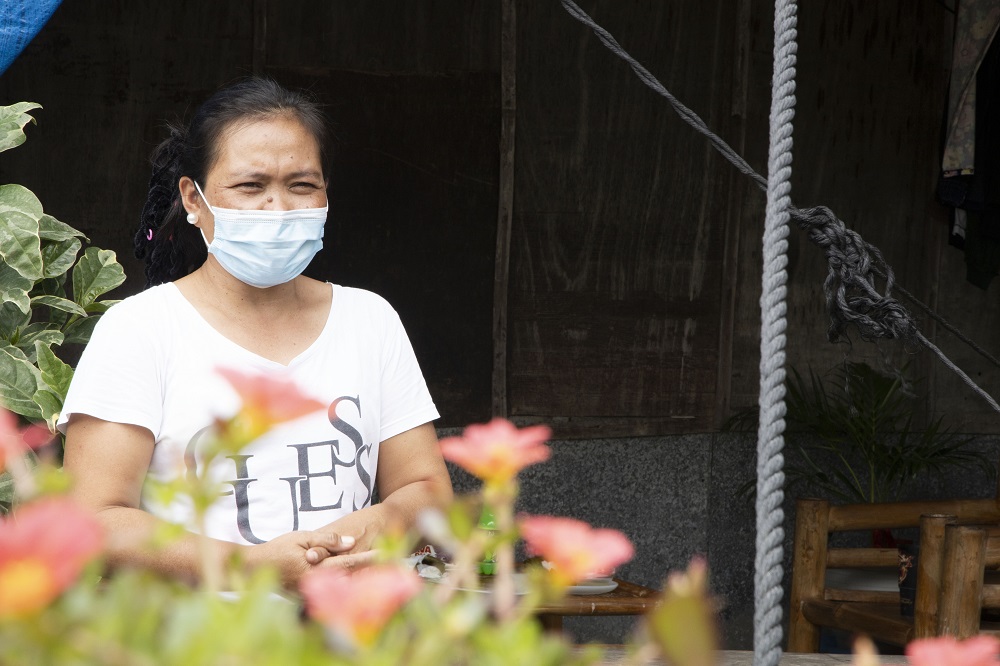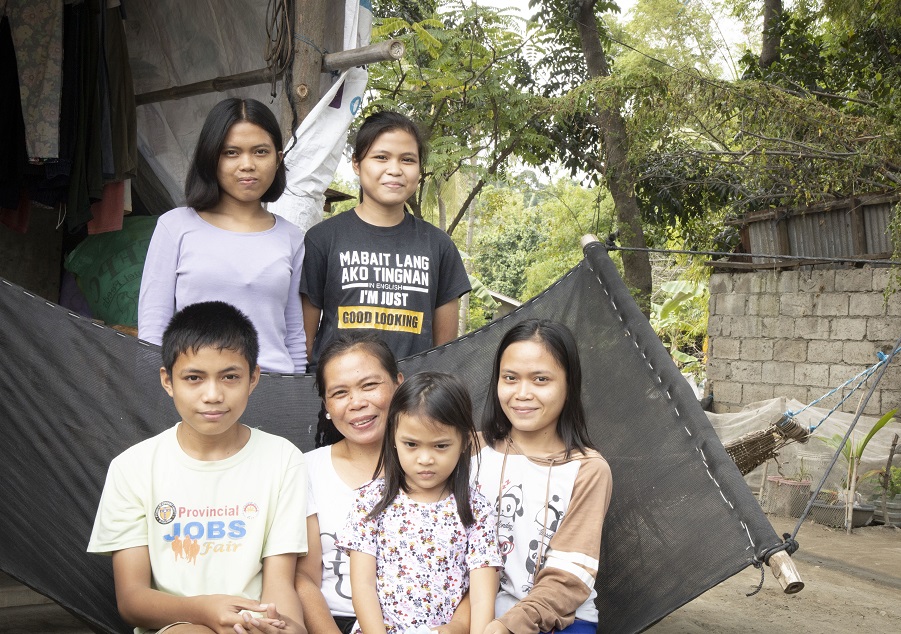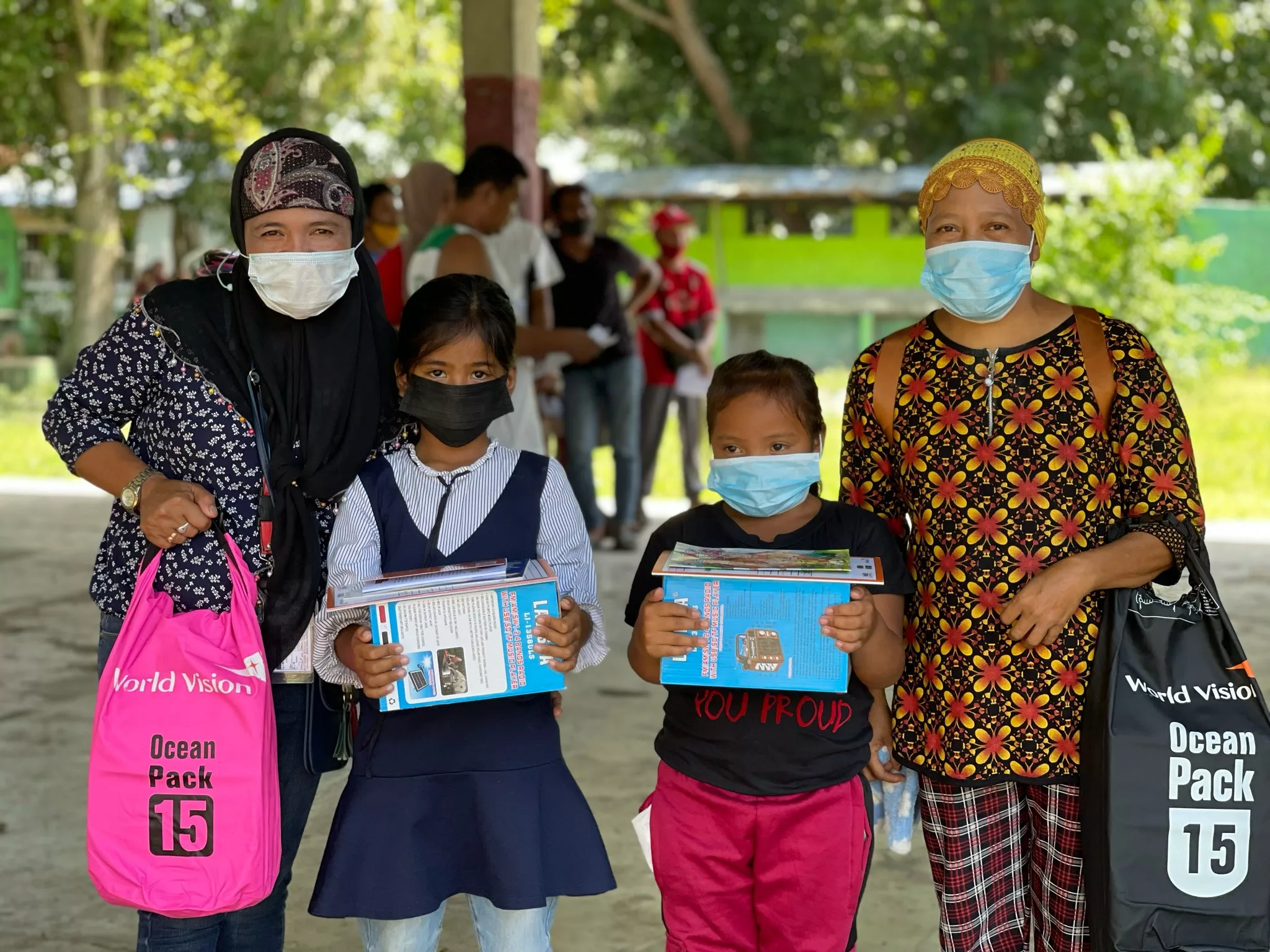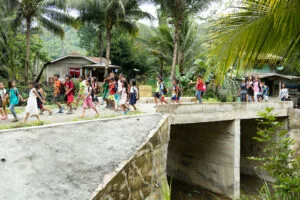Taal survivor shares how they survived 2020
Volcanic eruption. COVID-19. Five-feet high mud flood. A survivor recalls these series of tragedies that befell her hometown of Batangas last year.
In January 2020, Taal Volcano erupted after being dormant for 43 years. Its last major eruption was said to be in 1977. Midona, her husband, Edward, and their six children were living just 6 kilometers from the volcano.

“My neighbors were shouting that Taal Volcano was erupting. I remember hearing a loud sound, like a huge rock crumbling beneath us. I knew then that Taal Volcano was really erupting. We immediately ran out of the house with nothing but a few clothes in a bag,” Midona recalls.
She and her family, along with their neighbors ran to a higher ground where everyone can still see the erupting volcano. “I remember the heightened confusion around the time of the explosion. We didn’t know what to do and where to go. Children were crying, including my youngest child. Our eyes were in pain because of the ashes. The smell of sulfur was sickening. I wanted to cry but I had to be strong for my children,” Midona says.
Affected families lived in evacuation centers for almost three months before they were allowed to return to their home. Midona’s family were among the last few who returned due to the magnitude of devastation the volcanic eruption had caused to their village. Being close to the volcano, their village was entirely covered with ashes.
“I was shocked to see our house. I couldn’t move. I cried seeing our house after several months.” Thick ashes reduced Midona’s house to the ground.
Just as Midona’s family was recovering from the aftermath of Taal Volcano eruption, another disaster hit: COVID-19. The Philippine government implemented a strict lockdown to several communities to avoid the spread of the virus. For weeks, no businesses were open and no one was allowed to go out, except those selling and working on basic necessities such as food.
“COVID-19 had a big effect on our family. My children’s education was disrupted. I never got the chance to go up the stage to congratulate my children from finishing their school year. Weeks of lockdown were quite stressful because there was nothing to do and nowhere to go.”
As if volcanic eruption and a health pandemic were not enough, Midona’s town was ravaged by rushing mud-like floodwater, which the residents said was the first time to happen in their town. Though Midona’s house was spared, she saw how her surrounding was turned into a lake of brownish water that reached nearly 5 feet.
A few weeks after the flood subsided, World Vision provided cash assistance to families in Midona’s village so they can immediately repair their houses, affected either by flood or ashes. Prior to this, days after Taal Volcano erupted, World Vision also assisted families through cash for work and distribution of relief items
Surviving 2020
Like most people, Midona thought that 2020 wasn’t a good year. So, how did Midona’s family survived 2020?
The most important thing, she said, is to rely on God. “You have to trust and be at peace with Him.” A strong relationship with God makes every problem more bearable, she advises.
Second, she says, “Do activities that are fun and relaxing like planting. If you have a large space or lot, plant, especially now that the prices of basic goods are expensive.
Lastly, keep the love within the family. “Misunderstanding among family members will not help in difficult times. Even if you have money, if there is misunderstanding in the family, coping with life’s challenges will prove difficult. My family is poor but we are thriving because we have each other.”

Today, Midona’s small fishing town is gradually recovering from what happened to them. Fishing in Taal Lake, a major source of income for most families, has returned. Houses and schools are being repaired. Green shrubs and trees are now growing on the hills that used to be gray because of thick ashes. Children can now be seen playing within their yards.








